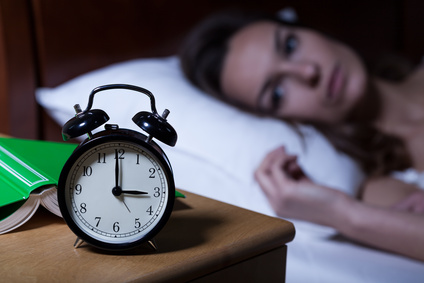📚How Long Does Sleep Paralysis Last?

Sleep paralysis occurs at the moment you're on the brink of falling asleep or right when you're waking up, leaving you entirely immobilized except for your ability to move your eyes. You might be wondering: How long can sleep paralysis last? That’s a valid question, and the duration of sleep paralysis varies based on the underlying causes of its occurrence.
Usually it will last for no longer than a few seconds or, at most, a couple of minutes. Of course when you are in the middle of it happening it may seem like it is going on for far longer.
What Happens During Sleep Paralysis?
Sleep paralysis can be very scary the first time it happens. Most people who experience it describe being completely aware of their surroundings, but unable to make any movements or talk.
It can also involve a difficulty of breathing with the feeling that there’s a large pressure being exerted on your chest, the ability to open and move your eyes, and the sensation that there’s a presence in the room with you. In fact, before sleep paralysis was understood, people used to think they were being possessed.
Why Does Sleep Paralysis Happen?
Sleep paralysis usually happens when your sleep patterns have become disturbed and you transition to a stage of unconscious sleep while still being conscious. In particular it is thought to happen mainly during REM sleep, which is the stage that involves the highest level of brain activity.
One of the reasons sleep involves you being unconscious is to give your body a chance to repair itself and to focus on the brain. This means you lose control over movement, but this usually is not a problem because you are sleeping at the time. If, for whatever reason, you are awake during this stage then it can take a moment for you to regain control over your movement, and this is why the sensation of sleep paralysis occurs.
How To Prevent Sleep Paralysis?
Sleep paralysis isn’t a sleeping disorder in its own right, but it is usually indicative of poor sleeping habits. A slight re-structure of the way you sleep can have a major impact on your energy levels during the day, and reduce the chances of sleep paralysis happening.
A few examples of what you can do to help your sleep are:
- Make sure you get enough sleep. Most of us will require between 6 and 8 hours of sleep per night. Too much or too little can lead to sleep problems developing.
- Keep to a routine. If you go to bed and wake up at similar times each day your body will get used to the routine and you’ll find the quality of sleep you get improves.
- Exercise. This is useful particularly if you have trouble getting to sleep because exercising will make you tired. Try not to do this within 4 hours of going to bed, though, because you want the effects to be controlled.
- Diet. It is important that you don’t eat a large meal, smoke, or drink alcohol or caffeine just before you go to bed. If you do your body will start absorbing and digesting it all and this will affect your ability to sleep properly.
- Environment. This is an easy one to sort out. By sleeping in a comfortable, dark, quiet, and cool environment you will be optimizing the benefits you get from sleeping, and make it much easier to fall asleep in the first place.
Sleep Paralysis Lasting Hours
In some rare cases the effects of sleep paralysis may last for a number of hours. This is very unusual, though. Quite often it might seem like it has lasted that long, but in reality it has only been going on for a few minutes. If, however, it has continued for very long periods of time beyond the usual seconds or minutes, then you should consult a doctor for further assistance.
It’s probably an indication of severely disturbed sleeping patterns, but it’s worth getting checked out just to be sure, and your doctor will have lots of options on how to help you out.
The Final Word
Most people will experience sleep paralysis at some point in their life, and it usually isn’t anything to worry about. In fact, it’s a sign that your sleep patterns aren’t great and that you should look at adjusting your routine and the environment within which you sleep.
If you get worried when you ask yourself how long does sleep paralysis last, then luckily the answer, in the vast majority of cases, is a few seconds or minutes. It happens as a result of you transitioning into a sleep phase a little early, or waking up too soon, so when your brain catches up with your body everything will return to normal.





